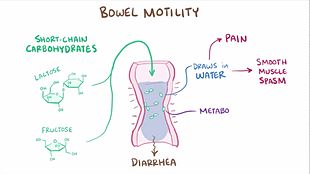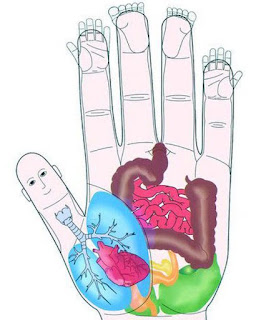IBS - it's not fun
Thank You for visiting my blog. For more information or to book an appointment click here.
Connect with an expert click here
Connect with an expert click here
IBS or Irritable bowel
Syndrome is not fun.....I just finished working with a client on their symptoms and decided to share the clients journey...Saurabh Bidani
IBS is a mix of
belly discomfort or pain and trouble with bowel habits: either going more or
less often than normal (diarrhoea or constipation) or having a
different kind of stool (thin, hard, or soft and liquid).
It’s not life-threatening, But IBS can be a
long-lasting problem that changes how you live your life. People with IBS may
miss work or school more often, and they may feel less able to take part in
daily activities. Some people may need to change their work setting: shifting
to working at home, changing hours, or even not working at all.
What Are the Symptoms of IBS?
People with IBS
have symptoms that can include:
- Diarrhoea (often described as violent episodes of diarrhoea)
- Constipation
- Constipation alternating with diarrhoea
- Belly pains or cramps, usually in the lower half of
the belly, that get worse after meals and feel better after
a bowel movement
- A lot of gas or bloating
- Harder or looser stools than normal (pellets or flat ribbon stools)
- A belly that sticks out
Stress can make
symptoms worse.
The remedy to
IBS is of course unique to each patient.
Some tips
EXERCISE
For many people, exercise is a tried
and true way to relieve stress, depression, and anxiety — especially when it’s done consistently. Anything that relieves stress can help with bowel discomfort by stimulating regular intestinal contractions. If you’re not used to exercising, be sure to
start slow and work your way up.
RELAX
Incorporating relaxation
techniques into your daily routine can be beneficial to everyone, especially if
you’re living with IBS. These techniques include:
·
diaphragmatic/abdominal breathing
·
progressive muscle relaxation
·
visualization/positive imagery
EAT FIBER
Fiber is a bit of a
mixed bag for IBS sufferers. It helps ease some symptoms, including
constipation, but can actually worsen other symptoms like cramping and gas.
Still, high-fiber foods such as fruits, vegetables, and beans are recommended
as an IBS treatment if taken gradually over several weeks
EAT LESS
DAIRY
Some
people who are lactose intolerant have IBS. If you’re one of them, you can try eating yogurt instead of milk for your dairy requirements — or consider using an enzyme product to help you process lactose. Your doctor may recommend avoiding dairy products entirely, in which
case you’ll need to ensure that you consume enough protein and calcium from other sources. Talk to a dietitian if you have questions about how to do this.
USE
LAXATIVES WITH CAUTION
Your
over-the-counter (OTC) choices can improve your IBS symptoms or make them
worse, depending on how you use them.
MAKE SMART
FOOD CHOICES
It
goes without saying that certain foods can make gastrointestinal (GI) pain
worse. Be on the lookout for which foods exacerbate your symptoms, and be sure
to avoid them. Some food and drinks include:
·
beans
·
cabbage
·
cauliflower
·
broccoli
·
alcohol
·
chocolate
·
coffee
·
soda
·
dairy products
While there are some foods that you
should avoid, there are also some foods you can eat that can help IBS. Foods containing
probiotics, or bacteria that is helpful to your digestive system, have helped
relieve some symptoms of IBS, such as bloating and gas.
TAKEAWAY
IBS can be a pain in the stomach, but you can take
steps to prevent or alleviate symptoms. Managing your stress and watching your
diet are two of the best ways to relieve IBS symptoms from home. 


Comments
Post a Comment